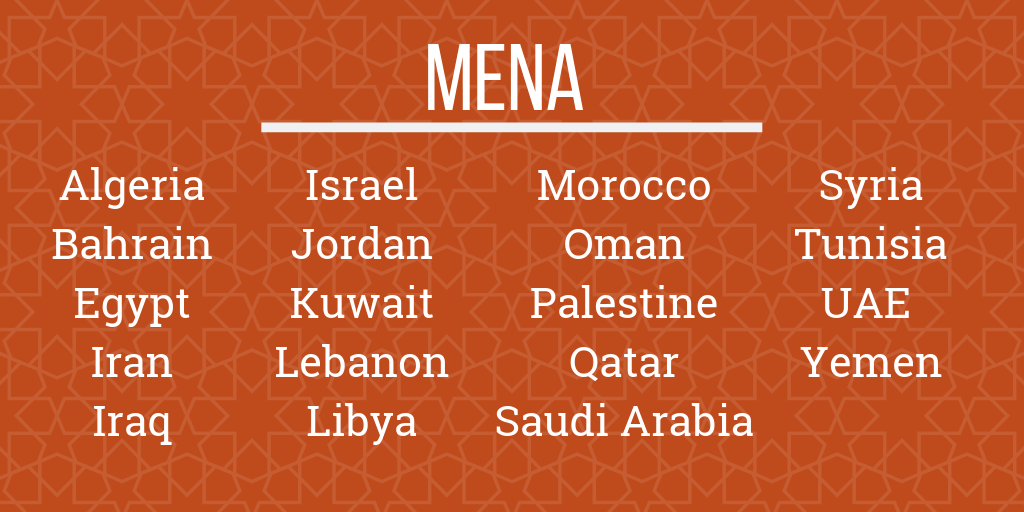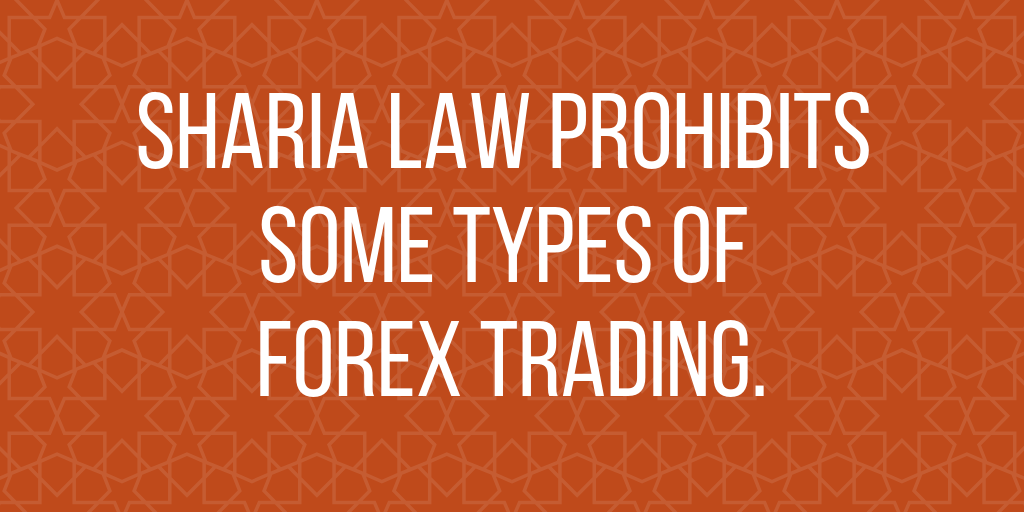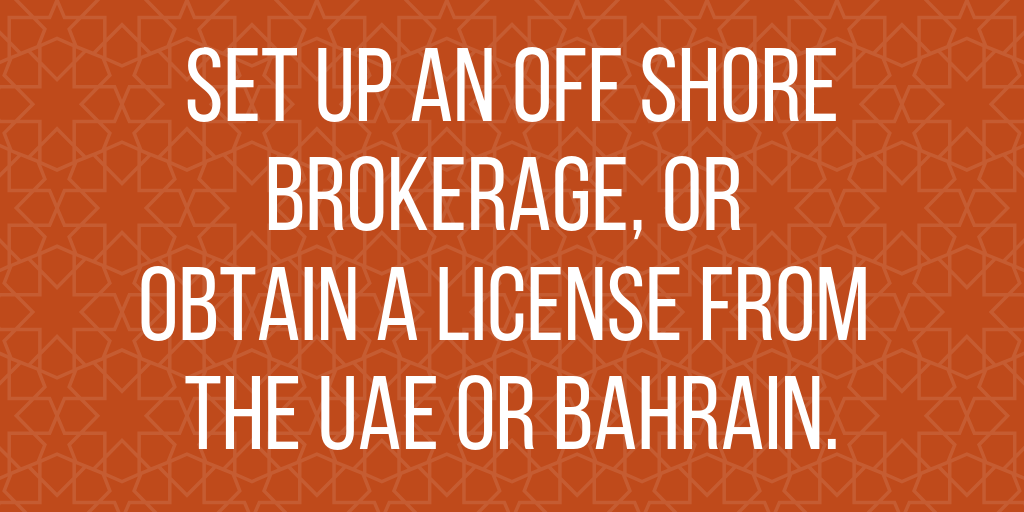MENA | Starting a Forex Brokerage in the Middle East and North Africa region
What you need to know about working with forex clients in the Middle East
Finding leads and recruiting new forex clients is how you grow your FX brokerage. One approach to expansion is to move into new regions and markets. In the past, we’ve covered the software tools you need to expand into new regions. Over the next few weeks, we’ll cover the basic details of regions where forex brokers can flourish.
This week, we’re looking at the Middle East and North Africa (MENA), covering the area from Morocco on the northwest coast of Africa to Iran on the eastern side of the Persian Gulf.
Forex brokers have been expanding into MENA over the last decade or so. They’ve become even more interested in operating in the region since ESMA began introducing tighter forex regulations in the European Union. Although the region is vast and diverse, potential forex clients throughout MENA will look for many of the same traits in a broker.
Religious considerations
To establish a forex brokerage in this region, you will likely need to offer some Sharia-compliant investment opportunities. Islamic law prohibits several financial products. These prohibitions make some forex products off limits for Muslim investors while making other products popular.
Sharia finance forbids loans and investments that charge or pay interest (riba), so individuals looking for Islamic forex brokers want interest-free options. Among these investors, swap-free accounts are the most popular sharia-compliant forex product. You can offer swap-free accounts for Muslim investors by charging set fees for overnight positions instead of interest.
Islamic law also forbids transactions where no goods are actually exchanged. This makes some Islamic jurists object to certain types of spot forex transactions, regardless of whether or not they’re swap-free. Be aware of this concern, and address how trades impact the market in a concrete way on your brokerage website. Alternatively, you can offer investments in commodities to provide Muslim clients more options.
Islamic finance licensing
For attracting the most forex traders in the MENA region, you need to consider how to demonstrate that your investment products are compliant with Sharia law.
You can do this by getting a license from a Shaira supervisory board (SSB). SSBs are comprised of Islamic scholars and economists who review financial products and issue a fatwa that indicates whether or not Sharia law allows Muslims to use them. Many Muslim investors look for forex firms that have been approved by an SSB.
Your firm can set up an internal SBB. This can be complicated because there are a limited number of Islamic jurists to fill these roles, and they may demand a high fee for their services. However, the investment will enable you to attract a larger number of clients in MENA. Establishing an SSB also allows you to apply for special licenses in countries that have separate licenses for Islamic investment firms, like Bahrain.
If your firm is very new and does not have the funds to establish an SSB, you can still take steps to demonstrate your dedication to providing Sharia-compliant forex investments. You can follow the Sharia standards established by the Accounting and Auditing Organization for Islamic Financial Institutions (AAOIFC) and specifically detail how you do so on your website. You can also hire an AAOIFC Advisor to review your products and confirm you’re following the organization’s standards. Alternatively, you can pay for the Islamic International Rating Agency to provide a Sharia Quality Rating for your firm.
Regardless of whether you plan to have an official license or simply offer Sharia-compliant forex products, be prepared to familiarize yourself and your salespeople with basic guidelines on Islamic finance so you can answer leads’ questions about your products.
Government regulation
You can choose to offer services to clients in the region even if you don’t have a license from a government there. However, several governments in MENA have financial regulators that issue licenses for forex brokers.
The Dubai Financial Services Authority (DFSA) issues licenses to operate in the Dubai International Financial Centre (DIFC). The city is a hub for all kinds of investment, including forex trading. A DIFC license will set you up for success throughout the region and will position you for long-term growth.
If you are committed to offering Sharia-compliant investments, you may wish to obtain a license through the Central Bank of Bahrain (CBB). Many Sharia finance organizations are based in Bahrain, and the country offers a specific license for Sharia investment firms. A CBB Sharia investment firm license may enable you to more easily expand to other countries with a large Muslim population, like Indonesia.
Marketing in MENA
Your approach to marketing in the Middle East won’t need to vary much from the approach you use in Europe or the United States. You can use digital marketing and social media sites like Facebook and Twitter to share blog posts and other content.
Google is the most popular search engine in the region. However, Google Ads doesn’t allow forex ads in any Middle Eastern or North African countries, so you won’t be able to use Google advertising. Google will still display your website to web searchers, so use the tools available to improve your SEO.
There are many languages spoken in this large and diverse region. However, many people living in large cities in MENA speak English. In Dubai, for example, English is the most-spoken language. This means that you may be able to do marketing primarily in English. That said, you’ll likely receive a large payoff from having your website translated and providing a trader’s room in multiple languages.
You can also hire a translator to help you create text for ads, or you can partner with IBs who speak other common languages in the region.
Software tools
You don’t need any special software tools to work in the Arab world. There are, however, a few tools that you should make sure your existing software has in order to make it easier to operate with IBs and within the confines of Islamic financial principles.
Multi-level account management:
If you plan to work with IBs to recruit new clients, you’ll need a back office software that allows for multi-level account management.
Multilingual back office:
It will be easier to work with IBs who advertise in languages other than English if they have access to back office forex software in their preferred language.
Dividend management:
Since Muslim investors may be especially interested in commodities, you’ll need a tool to automatically pay dividends.
Granular fee control:
Because you will need to offer interest-free swaps, you’ll need the ability to control the fees that you charge clients.
The Middle East and North Africa are a source of untapped potential for forex brokers. Being prepared to move into the region can help your firm grow and offer protection against regulations in Europe.
You should always speak to a legal advisor before making decisions about regulations. Our blog posts should not be considered legal advice.





Comments are closed.